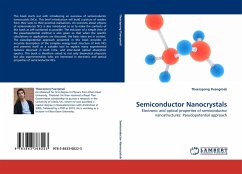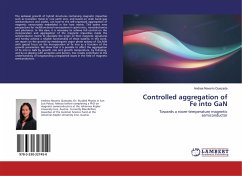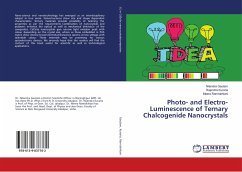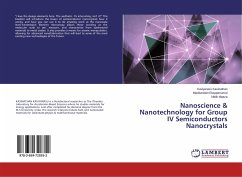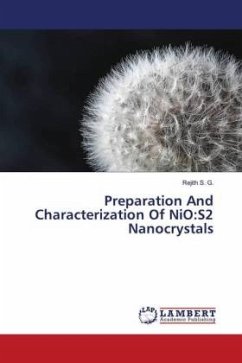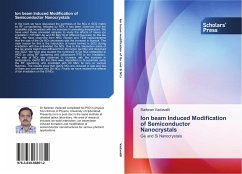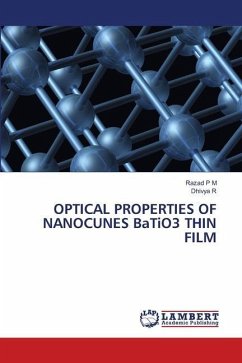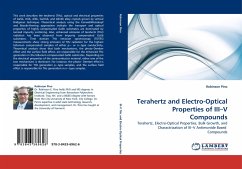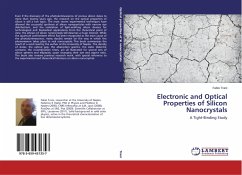
Electronic and Optical Properties of Silicon Nanocrystals
A Tight-Binding Study
Versandkostenfrei!
Versandfertig in 6-10 Tagen
27,99 €
inkl. MwSt.

PAYBACK Punkte
14 °P sammeln!
Even if the discovery of the photoluminescence of porous silicon dates to more than twenty years ago, the research on the optical properties of silicon is still a hot topic. The most recent experimental techniques have allowed the successful synthesis of silicon nanoparticles with narrow size distributions, and the realization of light-emitting silicon devices for technological and biomedical applications. From the theoretical point of view, the physics of silicon nanocrystals still deserves a huge interest. While the quantum confinement effect has been recognized as the main cause of the phot...
Even if the discovery of the photoluminescence of porous silicon dates to more than twenty years ago, the research on the optical properties of silicon is still a hot topic. The most recent experimental techniques have allowed the successful synthesis of silicon nanoparticles with narrow size distributions, and the realization of light-emitting silicon devices for technological and biomedical applications. From the theoretical point of view, the physics of silicon nanocrystals still deserves a huge interest. While the quantum confinement effect has been recognized as the main cause of the photoluminescence, many doubts remain on the way in which the phenomenon takes place in real nanocrystals. This book summarizes the result of a work lead by the author at the University of Naples. The density of states, the optical gap, the absorption spectra, the static dielectric constant, the recombination times, are all illustrated for several sets of silicon spheres and ellipsoids, upon changing their size and aspect ratio. The book also reviews previous research work, with special reference to the experimental and theoretical literature on silicon nanocrystals.



